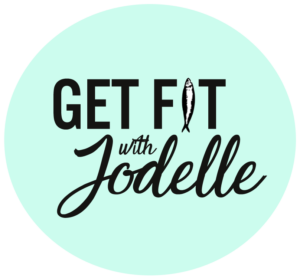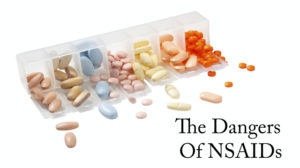How Pain Pills Affect Your Health
“The pain you feel today is the strength you will feel tomorrow.” – Anonymous
I’ve coined us the “instant gratification nation” and for good reason. Our modern sciences and technology has allowed us the privilege to have within our means, quick fixes that make life easier. In particular, when we feel pain or inflammation of any kind, we can easily and quickly reach for a pill that will ease the discomfort quickly.
But just because we can do something, doesn’t always mean we should.
Pain of any kind is not an Advil-deficiency. Cramps are not a Midol-deficiency. Headaches are not an Aspirin-deficiency. Pain is a message of the body that something is not quite right, out of balance, lacking, or needing attention. Pain is the feeling stemming from inflammation. Inflammation is a beautiful messenger our bodies have been designed to utilize, not something we should try to immediately suppress. An inflammatory response is your body’s first avenue of setting up the healing stage. And in most cases, rather than shutting it down, we need to learn to listen to what our body might be telling us.
Let’s look at it this way: your phone is ringing off the hook with numerous voicemail notifications sounds that begin to irritate you (aka inflammation and pain). You decide to no longer want to use voicemail on your cell phone (aka the desire to not feel the pain). You disable it (aka take an ibuprofen), and your bank calls to tell your account is “outstanding”. Yet, you never get the message (aka the pain-reliever did it’s job and you not only can’t feel pain but systems are not being taken care of either). One day you walk into the bank and walk out with a big “forehead slap.”
If you will allow me to get a bit scientific on you, let’s start with something called Prostaglandins. (Hang in there, I’ll make this easy).
Prostaglandins are hormone-like substances that are required for a wide array of body functions. Functions such as contracting and relaxing of smooth muscle (think the movement of the small intestine); dilating and contracting of blood vessels (think of the fight or flight response when your blood begins flowing more); controlling blood pressure AND of course: controlling inflammation. To understand further, in regards to the way the body gets a fever, prostaglandins stimulate the hypothalamus to increase body temperature, it stimulates the cells to become inflamed, and it sensitizes the nerves to pain.
Therefore: you wake up one morning, notice you’re a bit achy all over, head to work, begin to feel a fever coming on and your forehead is burning, you leave work early, pain starts to really set in, and you set up camp with pain-relievers and your favorite blanket for whatever this bug is. In acute cases like high fevers and broken bones, NSAIDs, pain relievers and steroids can be the only way to muddle through, but chronic use of these anti-inflammatories” for minor headaches, cramping, and low-level inflammation can cause a cascade of chaos to your delicate messengers, not to mention your body.
How do NSAIDs and pain-relievers work?
Simply put, pain-relievers and anti-inflammatory drugs prevent prostaglandin production, so the fever comes down, the inflammation as well, and the nerves are no longer sent screaming pain signals. Not so simply, they do this by blocking something called cyclooxygenase-1 (COX-1) and cyclooxygenase-2 (COX-2), or the enzymes responsible for making prostaglandins in the body. Ever heard the term “COX-2 Inhibitors”? That’s exactly what aspirin, ibuprofen and other anti-inflammatories are. So, it sounds well enough right? Well, once in a while when the body is in dire straits such as recovery from a surgery, this is warranted. However, you need to know what’s happening if you, like many people, RELY on the steady use of baby aspirins for heart issues, Tylenol for frequent headaches, and Naproxen for arthritic pain.
Remember how prostaglandins also control other things like smooth muscle, blood pressure, and dilation of blood vessels? Oh yeah….about that.
Your headache may be gone, but suddenly digestion may be taking a turn for the worst. Gas, bloating, and constipation anyone?
Prostaglandins are also responsible for producing the mucosa in the stomach lining and provide immense protection against dangerous pathogens. By suppressing them chronically, you are suppressing the protection of the gut lining, as well as lowered levels of stomach acid, creating the perfect storm for gastric ulcers and bleeding.
What else? Aspirin and other NSAIDs reduce the bloods ability to clot. This can cause tremendous issues in wound healing.
And what’s more, prostaglandins are responsible for hormonal secretions and healthy periods in a women. Suppressing them long term could be detrimental to an individual’s unique hormone balance, specifically reproductive hormones.
What can one do instead of treating their back pain with a daily pain-killer?
Firstly, ask yourself, “Why is this so? When did this start? How may I be continuing to contribute to this? Are there certain foods or drinks I consume that cause it to flare up, or certain lifestyle behaviors?” Essentially, become your own investigator of health when an issue such as frequent headaches start to occur.
Next, listen up and become aware. Keep a food journal and record how your pain feels after each meal or at different points in your day following certain behaviors (such as sitting for long periods). Notice. Gather insight. Pay attention to the message. When it comes and when it goes.
Try eliminating certain triggers, foods, or behaviors for a time. Perhaps experimenting with different approaches to reduce inflammation naturally such as going gluten-free for 21 days, or meditation, or drinking 80oz of water a day if you had only been drinking 40oz. Commit to the shift you make and again take note, and listen to see if the inflammatory message eases up or gets quieter.
And finally, to gain further insight, seek the help of a nutrition therapist, or health practitioner you trust to help you weed out the culprits behind foods, lifestyle, stressors, and environments that could be outside of your understanding or knowledge-base.
Just like a band-aid does not heal the cut, pain-killers do not heal the pain. You have to mend the cut, let it breathe, keep it clean, and nourish it. This is therapy at its best. This is listening to your body. And your body can and will heal when it’s given the right conditions to do so.





Leave a Reply
Want to join the discussion?Feel free to contribute!